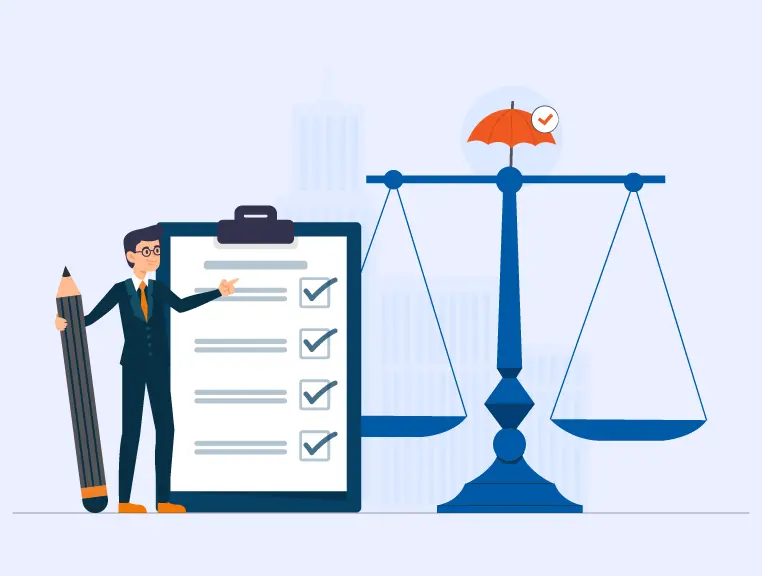Businesses these days are vulnerable to many lawsuits regardless of the location or industry. Small business owners are frequently involved in defending against claims and lawsuits arising from their business operations.
To defend against claims of property damage, bodily injury, libel, slander, or anything else, small businesses need to purchase the insurance policy from the right insurers. The key here is buying the policy from a trusted and reputed insurer. This can help small business owners cover the legal fees in the event of a lawsuit.
If the claim results in a suit filed against the business, liability insurance cover the cost of the investigation and attorney expenses. It also covers the cost of settlement or judgment.
Many small businesses purchase liability insurance to protect against legal claims. The general liability insurance policy is the best option to cover the legal costs. But to maximize benefits from this policy, business owners must fully understand what claims are covered. They should know when the insurer will pay for a settlement.
How does a general liability help small business owners?
A general liability insurance policy protects small-business owners from claims arising due to injury, property damage, and negligence related to their business activities and covers the costs associated with a legal defense.
The coverage provided by this policy makes a significant business difference due to its ability to land clients and bring in revenue. It’s usually advised for small business owners to have this policy because many clients demand it when signing contracts.
Commercial general liability insurance protects small business owners by providing financial resources during unforeseen legal events to keep the business operational.
Legal costs covered by the liability insurance:
A general liability insurance policy provides financial protection by covering the following expenses:
- Attorney’s fees, court costs, witness fees, and police report costs incurred while defending or investigating a suit or claim against the business
- Expenses incurred when the insurance company asks the insured to assist in his defense
- Judgments or settlement costs arising out of a covered suit may include the injured party’s medical expenses in case of unsuccessful defense and interest required on the judgment.
- It also covers the premium on a court-mandated bond
Case Study: Small business owners covering legal fees
Danish, a 33-year-old individual from Mumbai, owned a small homebuilding business that was in business since May 2015. In two years, Danish finished five new projects. Recently, he secured a kitchen and bedroom renovation project on the outskirts of Pune. He was working there with his fellow workers. He was happy about adding the big project to his list of vital projects.
Read more: How to Calculate the Premium for Product Liability Insurance?
However, one day, he accidentally caused significant damage to a wall, leaving the living room exposed to the outdoors. Due to this incident, the house became temporarily unlivable.
The homeowners filed a lawsuit against Danish for damaging a vital part of their living room and the cost of temporary housing. At that time Danish felt overwhelmed, upset, and indignant, but luckily, he had bought general liability insurance to protect his small business. He contacted his insurers to take care of the lawsuit expenses that he had to bear.
The commercial general liability policy not only covered Danish for the repair cost of the damaged living room wall and temporary housing cost that the homeowners had to incur, but it also covered for the legal cost including the attorney fees and court costs.
Thus, having a general liability insurance policy helped Danish not only to secure the financial expenses of the lawsuit but also to protect his business.
About The Author
Rajesh Mehta
MBA Finance
Rajesh has become a distinguished expert in liability insurance with over 8 years of extensive experience in the insurance industry. As a dedicated writer for SecureNow, he crafts insightful and informative blogs and articles that help businesses and individuals understand the nuances of liability insurance, from policy details to industry trends. Throughout his career, Rajesh has developed a profound knowledge of various types of liability coverage, including professional, general, and product liability insurance. Their expertise enables them to break down complex topics into accessible content, making it easier for readers to make informed decisions about their insurance needs.




